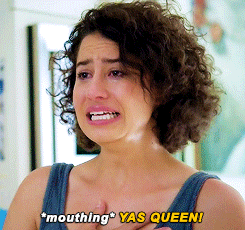We’ve most likely all been hit with the dreaded “Where do you see yourself in five years?” interview question. If you’re like me, you have no clear picture of what lies ahead in your professional career. You may have a vague idea of where you’d like to end up, but in all honesty, could not articulate this to save your life in an interview. My lack of clarity around this response does not have to do with the fact that I am not a motivated individual, or that I don’t see many doors opening in my future. Quite the opposite! I am almost overwhelmed with the possibilities that await me post-graduation, and I am excited to explore these different options. Yet, at this point, limiting myself to one of those opportunities seems wrong-and that is essentially my personal struggle with answering this interview question.
In order to better answer this question in an interview setting, I did some research. I found a column from the New York Times, which may come in handy in order to answer this question successfully, and honestly. In the piece, David Cancel, the CEO of Drift, which is a sales communication platform, is questioned about career and life advice he has for recent college graduates.
His response proves very telling towards crafting an appropriate response to the dreaded interview question:
“If you ask me today what my five-year plan is, I don’t know. My plan is that I try to make every day as good as it can be, and then I try to make the next day better than the last one. That’s it. It’s a slow progression, but if you do it over time, amazing things happen.
Also, be prepared to work hard. That can help you get ahead if you don’t have the advantages that other people have, because not many people will do it. Not many people want to do anything that involves discomfort. But if you want to grow in any dimension in your life, it involves discomfort. If you’re not willing to deal with the discomfort, you can’t grow. It’s impossible.”
His advice (which is applicable to employees of all ages really) can help you answer the five-year-plan question for several reasons. Primarily, this answer enables you to distance yourself from the elaborate, perhaps somewhat dishonest, answer that you think your interviewer wants to hear. It also allows you to be more genuine with your self-presentation in an interview, and formulate a more honest, authentic response.
Turning back to Cancel’s advice, your answer might be similar to something like this:
While I do often contemplate about the future of my career, I find that it’s often difficult to create a clear vision of my life five years from now. Inevitably, there will be unforeseen circumstances and opportunities, and plans may not always come to fruition as I had expected. Being open and flexible to the different challenges life throws my way is one of my greatest strengths.
Yet, some goals I have consistently set and been working towards, and what I would definitely plan to do here, is to do my best to always be improving my skills and abilities, and learning as much as I can. Every day is an opportunity to progress, and I plan to work as hard as I can and take on as much responsibility as I’m able to, in order to improve, progress, grow, and be more effective in my position.
This being said, careers take time and patience, so I’m willing to put in the effort and time, and entrust that if I do that, opportunities will arise.
Lastly, in the past, I have consistently stepped out of my comfort zone, and have taken on new challenges that push me to achieve new heights. Through these experiences, I have learned and grown the most and therefore, I plan to welcome those opportunities in the near future, which hopefully will include working for your company/organization in xx position.
Or something along those lines.
Essentially, the final point is that even if you don’t have an extremely detailed vision of where you want to exactly be in five years, you can take this question as an opportunity to focus on your strengths, highlighting your flexibility and openness to change, as well as your strong sense of hard work and patience. Not only are you answering the question in a more honest fashion, but you’re able to come through as more authentic, allowing for the interviewer to get a good look at the “real” you. Although tailoring your answer to the job description never hurts, if you really are unsure of what your future path looks like, using an answer similar to this, or whatever you believe best fits your honest representation, is a great way to knock this question out of the park!



